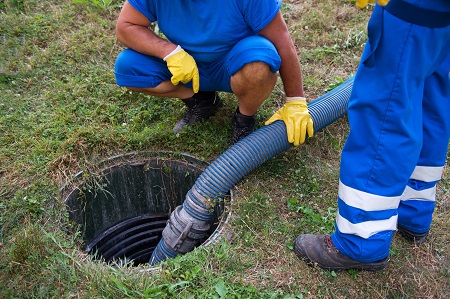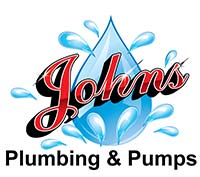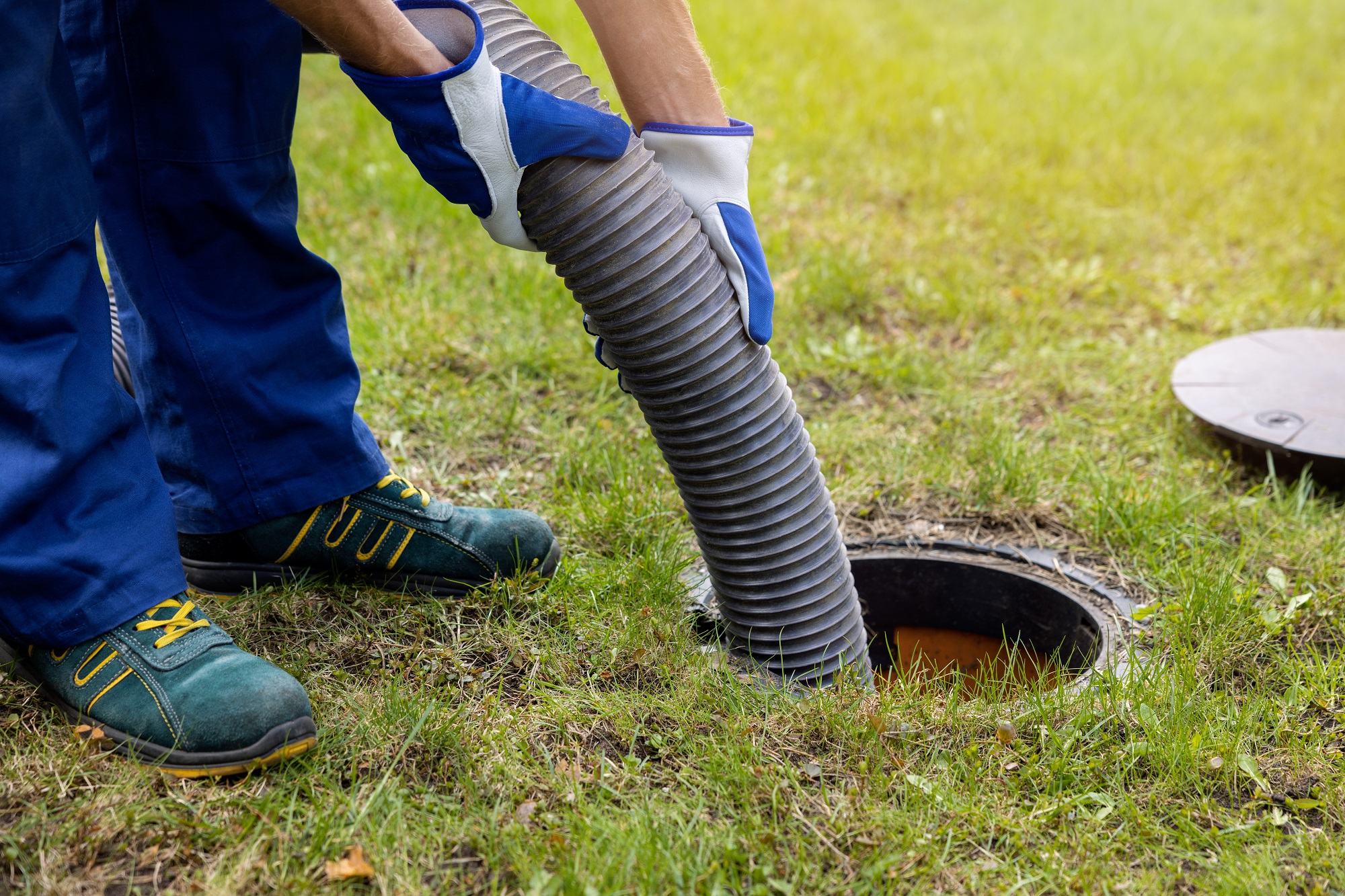Imagine the unpleasant surprise of stepping onto your lush, green lawn only to sink into a soggy mess due to a malfunctioning septic system.
You’re probably aware that this isn’t a situation you’d want to find yourself in. So, let’s equip you with the basic knowledge of septic repair.
Understanding the workings of your septic system and recognizing early signs of trouble can save you from costly repairs, not to mention the icky cleanup.
We’ll explore the common issues that can arise, how to troubleshoot them, and when it’s time to call in the professionals, ensuring you’re well-prepared to handle any septic system snafu.
Importance of Septic System Maintenance

Understanding the importance of regular septic system maintenance, you’ll realize that it’s not only essential for keeping your system running smoothly, but it also prolongs its lifespan, prevents costly repairs, and safeguards the health of your household and the environment. It’s a vital task that’s often overlooked, but neglecting it can lead to disastrous consequences.
Your septic system is responsible for treating and disposing of household wastewater. If not maintained, it can lead to system failures, groundwater contamination, and health risks. Regular pumping, typically every 3 to 5 years, removes the buildup of solids, reducing the risk of blockages and breakdowns. It’s also critical to limit the amount of water entering the system to prevent overloading. Using high-efficiency fixtures and appliances, fixing leaks promptly, and spreading out laundry loads throughout the week are effective ways to manage water use.
You should also avoid flushing non-biodegradable items, chemicals, and grease down your drains, as they can clog the system and disrupt the treatment process. Regular inspections will help detect issues early before they become major problems. With routine maintenance checkups, you’ll ensure your septic system remains functional and efficient, protecting your investment and the environment.
Recognizing Common Septic Issues
Despite your best efforts in maintaining your septic system, you might still encounter problems due to various factors; it’s crucial to recognize common septic issues early on to prevent severe damage and costly repairs.
Being aware of typical signs will help you intervene promptly. Here are some common septic issues you should watch out for:
- Slow Draining: If your sinks, showers or toilets are draining slower than usual, it might be a sign of a septic system issue.
- Foul Odor: A strong, unpleasant smell around your property can indicate a problem with your septic system.
- Sewage Backup: This is a serious issue and typically means your septic tank is full or there’s a blockage in the system.
- Soggy Yard: If your yard is unusually wet or you notice puddles forming above the drain field, your septic system may not be functioning properly.
Understanding Your Septic System’s Anatomy
Diving into the anatomy of your septic system, it’s important to grasp that it’s primarily composed of four main components: the pipe from your home, the septic tank itself, the drain field, and the soil around and beneath the tank and drain field.
The pipe from your home, also known as the sewer line, carries wastewater from your home to the septic tank. It’s crucial that this pipe is clear of obstructions so that the system operates at peak efficiency.
The septic tank, which is a waterproof container typically constructed from concrete, fiberglass, or polyethylene, contains the wastewater for a sufficient duration. This allows solids to sink to the bottom, creating sludge and for oil and grease to rise to the surface, forming scum.
Next, the drain field, a subsurface wastewater disposal area, treats the wastewater by letting it slowly trickle from pipes out into the gravel and down through the soil. The soil acts as a natural filter, breaking down harmful bacteria, viruses, and nutrients before they reach the groundwater.
Septic System Repair Vs. Replacement
After familiarizing yourself with the components of your septic system and how they function, you’re better equipped to make an informed decision when faced with the choice of repairing or replacing your system.
When contemplating repair vs replacement, there are several factors to consider. Here’s a list of key elements to weigh:
- Age of the System: Older systems are more likely to need replacement. If your system is over 25 years old, it might be cost-effective to replace rather than repair it.
- The extent of Damage: Minor issues such as a broken pipe can be easily repaired. However, major problems like a faulty drain field may require a complete system replacement.
- Cost Difference: Evaluate the cost of repairs versus the expense of a new system. It’s not always financially viable to repair an extensively damaged old system.
- Regulations: Some locale regulations might mandate system replacement under certain conditions.
- Environmental Impact: Newer systems often offer better environmental protection features.
Steps to Troubleshoot a Septic Problem
Before you can effectively tackle a septic problem, you’ll need to follow a few essential troubleshooting steps to accurately diagnose the issue.
Firstly, identify the symptoms. Is there a strange odor, slow drainage, or water pooling in your yard? These symptoms may indicate septic tank overflow or blockage.
Secondly, inspect your septic tank and drain field. If your tank hasn’t been pumped in the last three to five years, it might be full. Meanwhile, a soggy drain field could point to leach field failure.
Next, check for blockages. This can be done by running water in sinks and flushing toilets to see if the water drains properly. If there’s a backup, it’s likely there’s a clog somewhere in the system.
Fourthly, examine the septic system’s components. Look at baffles, tees, and filters to ensure they’re functioning correctly. If any part is broken, it could be causing your problem.
Lastly, consider hiring a septic system professional. They have the tools and expertise to accurately diagnose and fix the problem.
Do’s and Don’ts of Septic System Care
When it comes to maintaining your septic system, there are several key do’s and don’ts you should be aware of to prevent costly septic tank repairs and keep the system functioning optimally. Understanding these guidelines will help you extend the life of your system and prevent major malfunctions.
Here are some vital do’s and don’ts:
- Do schedule regular septic tank inspections. Experts recommend an inspection every three years to identify potential problems early.
- Don’t flush non-biodegradable items. Items like diapers, wipes, or feminine products can clog the system and cause backups.
- Do conserve water. Too much water can overwhelm the system, leading to malfunctions.
- Don’t plant trees near your septic system. Roots can damage the tank and drain field.
- Do divert rainwater from your septic system. Excessive water can slow down the treatment process and cause flooding.
Choose John’s Plumbing & Pumps for Your Septic Repair Service Needs
Looking for a reliable septic repair service? Consider John’s Plumbing & Pumps, a team with over 60 years of experience in providing top-notch plumbing and professional septic services. Whether your septic alarm has thrown a warning light or you’re dealing with an emergency overflow, we can handle it.
Septic system service isn’t the same as sewer service. It requires a plumber with specific knowledge to diagnose and repair both aging and modern septic systems with equal precision. Fortunately, John’s Plumbing & Pumps, Inc. fits the bill. We have been dealing with these systems for decades, so you’re in safe hands.
Moreover, John’s Plumbing company doesn’t just do repairs. We are also ready to help you with the care and maintenance of your septic tank, pipes, and effluent pumps. We offer clear, comprehensible advice for all types of septic systems.
When it comes to older septic systems or improperly installed ones that have deteriorated, leading to total system failure, you can count on John’s Plumbing to make the replacement process easy. Our experienced team houses and maintains our own high-end, advanced equipment, providing you with more comprehensive and personalized services.
Quality services our experienced company provides:
- Residential and Commercial Property Repair Work
- Emergency Repairs
- Sewer Line Repair
- Septic Repair
- Water Pipe Repair
- Water Heater Repair
- And More
Contact us today for quality plumbing services and exceptional customer service.

